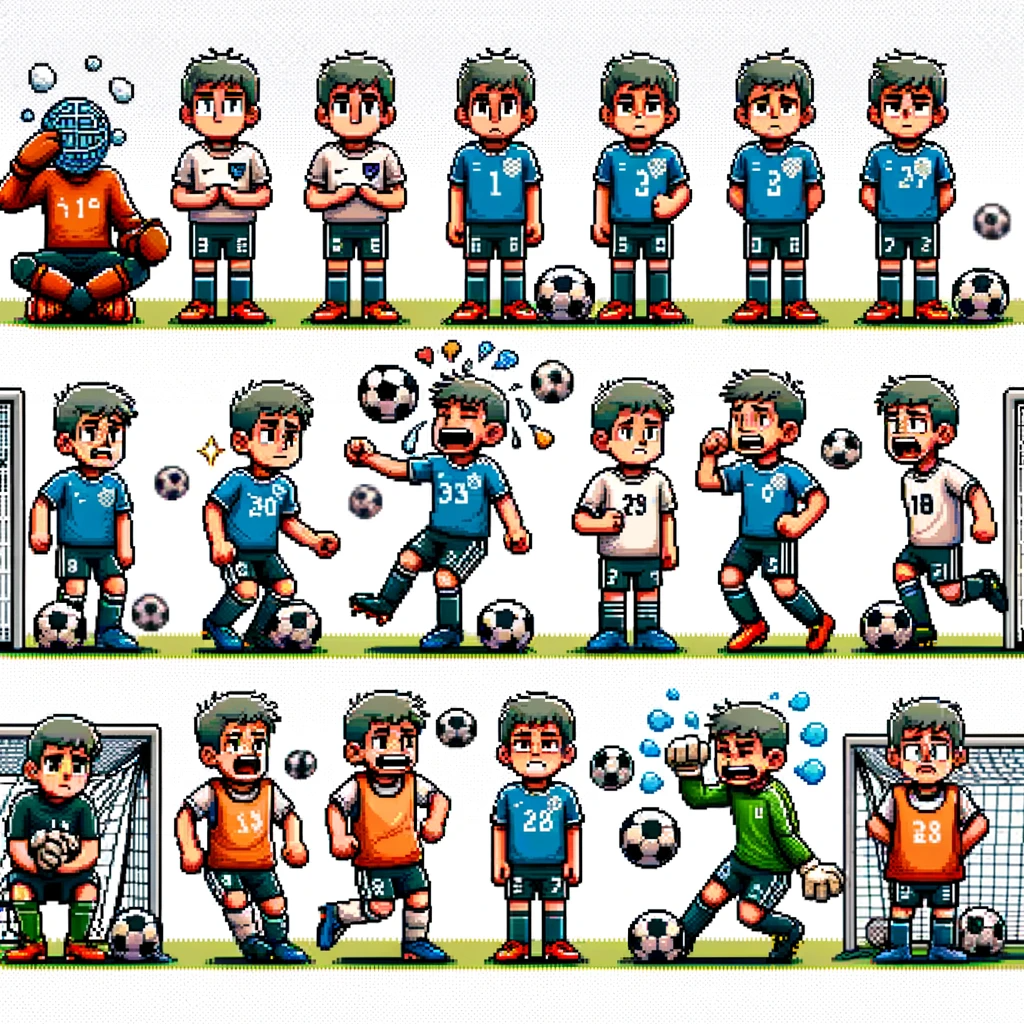
The Flow State in Young Soccer Players: Implications for Coaching and Development
In youth soccer, understanding the psychological aspect of the game is as vital as physical training.. A recent study titled “How and why do young soccer players change the Flow State?” sheds light on a crucial psychological concept known as the Flow State (FS) and its implications for young soccer players. This blog aims to unpack the findings of this study in an accessible manner, focusing on how it can aid soccer coaching and player development.
What is Flow State?
Flow State refers to an optimal psychological state where an individual experiences complete immersion and enjoyment in an activity. In sports, FS is closely linked to peak performance, where athletes feel at their best and perform at their highest level. The study investigated the FS in young soccer players during training and competitive matches, considering their playing positions, physical characteristics, and academic performance.
Key Findings of the Study
The study involved 141 U16 soccer players and found several important insights:
- FS is Higher During Training Than Competition: FS dimensions were higher during training sessions than before official competitions. This suggests that young players feel more psychologically comfortable and less stressed during training.
- Differences in FS Across Playing Positions: The study revealed that forwards had lower scores in certain FS dimensions (like clear goals) than other positions. This highlights how psychological traits can vary depending on a player has role on the field.
- Positive Relationship Between FS and Academic Performance: An interesting finding was the positive correlation between various FS dimensions and academic performance. This suggests that cognitive skills developed in academic settings can translate to better psychological states in sports.
Implications for Soccer Coaching and Player Development
Emphasizing Psychological Training
Understanding that young players experience a higher FS during training than in competitive matches, coaches can design sessions that mimic competitive conditions. This can help players adapt better to the pressures of actual games.
Tailored Training for Different Positions
Coaches can tailor their approach by recognizing the psychological differences among players in different positions. For instance, forwards might benefit from exercises focusing on setting clear goals and decision-making, considering their lower scores in these FS dimensions.
Integrating Academic Skills in Sports Training
The study’s findings about the correlation between FS and academic performance suggest that skills learned in the classroom, like focus and problem-solving, are beneficial in sports. Coaches should encourage players to engage in academic pursuits alongside sports.
Supporting Players’ Mental Health
The lower FS observed before competitions indicates a need for mental health support. Coaches should consider incorporating stress-reduction techniques and confidence-building activities into their training regimens.
Conclusion
The study “How and why do young soccer players change the Flow State?” opens new pathways in understanding the psychological dynamics of young soccer players. By integrating these insights into training and development programs, coaches can enhance the physical and mental prowess of young athletes, leading to well-rounded and high-performing soccer players.



